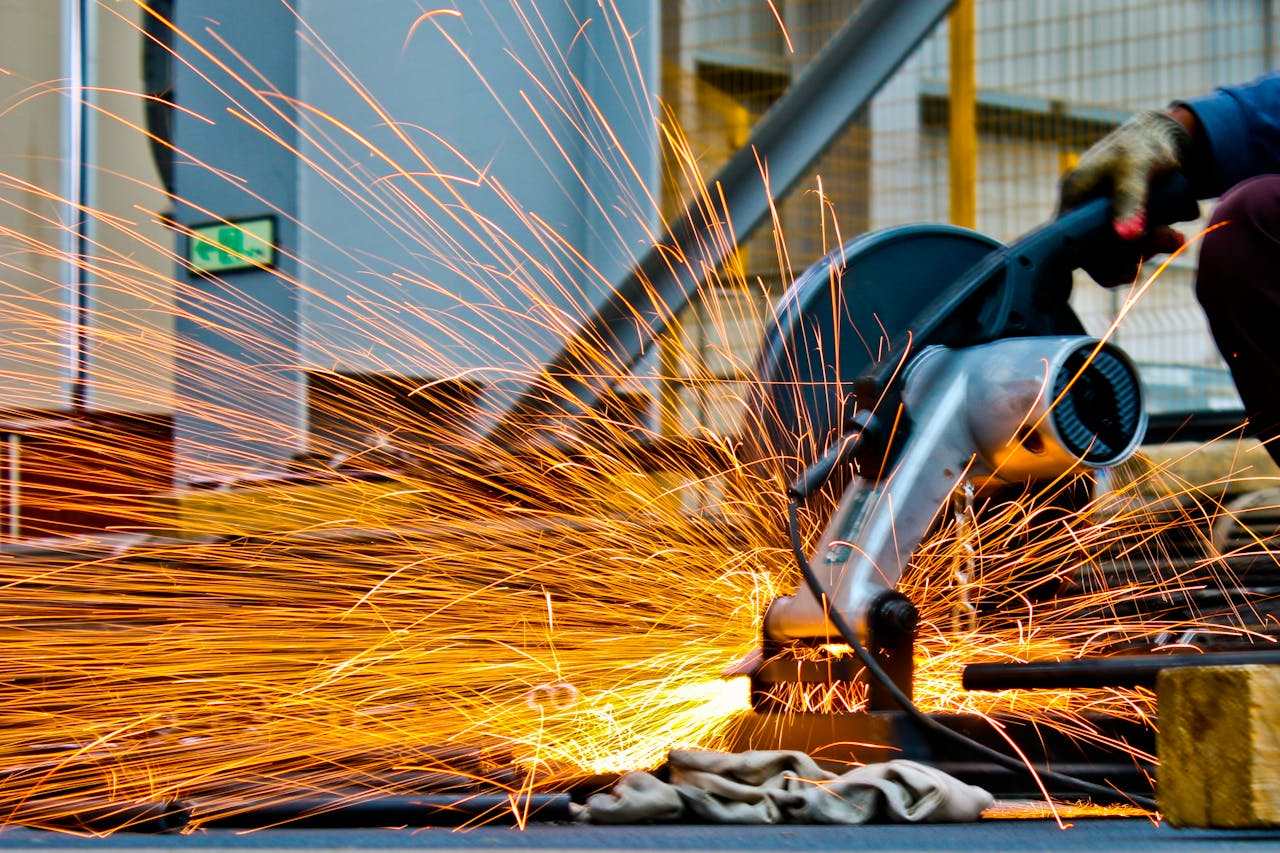Manufacturing in today’s competitive market demands precision, efficiency, and the ability to adapt quickly to changing demands.
For companies dealing with complex manufacturing operations, this can mean managing hundreds of moving parts from raw material procurement and production schedules to quality inspections and final delivery.
Without an organized system, these processes can easily become fragmented, leading to delays, higher costs, and missed opportunities.
An ERP system is designed to address these challenges by integrating all core business processes into a single, real-time platform. By doing so, it removes operational silos, increases visibility, and ensures that every department works toward the same goals.
In complex manufacturing, where precision and coordination are critical, ERP acts as the backbone of efficiency and productivity.

Uniting All Departments on a Single Platform
In a manufacturing environment, it’s common for sales, production, purchasing, inventory, and finance teams to work separately. This separation often creates gaps in communication and delays in information sharing.
The manufacturing erp software unites these departments, giving everyone access to the same accurate, up-to-date data. When order details are entered, they’re instantly visible across the business, ensuring that sales know the status, production knows the requirements, and procurement knows what materials are needed.
Improving Production Planning and Scheduling
Production planning in complex manufacturing is no simple task. It requires aligning machine capacity, workforce schedules, material availability, and customer deadlines.
An ERP system simplifies this by using advanced scheduling tools that create realistic, efficient production plans. If an unexpected event occurs, such as a supplier delay or machine breakdown, the ERP can automatically adjust the schedule, reassign tasks, and keep the workflow moving.
Maximizing Resource Utilization
Resources in manufacturing include far more than materials; they also involve skilled labor, specialized equipment, and production space. Inefficient resource allocation can result in bottlenecks, idle time, and increased costs.
ERP systems provide a clear overview of resource availability and workload, making it easier to assign tasks where they will have the greatest impact. This balanced approach not only improves output but also helps extend the life of machinery by preventing overuse.
Precision Inventory Management
Complex manufacturing often requires managing a large inventory of raw materials, components, and finished goods.
Overstocking ties up capital and warehouse space, while understocking can halt production. ERP systems solve this by tracking inventory levels in real time and forecasting future needs based on production schedules and historical data.
Automated alerts inform purchasing teams when to reorder, ensuring materials are available exactly when needed. This level of precision keeps production flowing and avoids unnecessary storage costs.
Integrating Quality Control
Quality assurance is critical in manufacturing, especially when dealing with intricate processes and multiple components. ERP systems can integrate quality control checks directly into the production workflow.
These checkpoints verify that each stage meets set standards before moving forward, helping prevent defective products and reducing rework. By identifying issues early, manufacturers save both time and resources while maintaining a strong reputation for excellence.
Real-Time Operational Visibility
ERP systems provide managers with real-time insights into every stage of manufacturing. This visibility allows them to monitor progress, spot potential bottlenecks, and make quick adjustments when needed.
For example, if a particular work center is falling behind schedule, resources can be reassigned immediately to maintain production flow. Real-time tracking also makes it possible to provide customers with accurate updates, improving trust and satisfaction.
Simplifying Compliance and Traceability
Many manufacturing industries must comply with strict regulations, requiring detailed documentation and traceability of materials and processes.
ERP systems make this straightforward by maintaining a complete record of every step, from raw material sourcing to final product delivery. This organized data makes audits faster and ensures compliance without adding extra workload to the team.
Data-Driven Decision Making
Complex manufacturing generates an enormous amount of data every day. ERP systems transform this data into meaningful reports and analytics that highlight performance trends, cost patterns, and potential areas for improvement.
Managers can identify which products or processes are most profitable, which suppliers consistently meet deadlines, and where efficiencies can be improved. This strategic insight supports better planning, smarter investments, and long-term growth.
Supporting Scalability and Growth
As a manufacturing business expands, the complexity of its operations increases. An ERP system is built to scale with the company, handling additional products, more orders, and expanded processes without slowing performance.
This scalability means that the systems and workflows in place today will continue to support the business as it grows, ensuring that efficiency and quality remain high.
Building a Competitive Advantage
In an industry where speed, quality, and reliability determine success, having streamlined operations is a competitive advantage.
ERP systems make it possible to deliver products faster, maintain higher quality, and keep costs under control. This combination not only improves profitability but also positions the business as a trusted and capable partner for customers.
Conclusion
Complex manufacturing involves countless interconnected processes, each dependent on the others to function smoothly. An ERP system brings these processes together in a unified, real-time environment, allowing manufacturers to plan better, use resources more effectively, maintain quality, and make informed decisions. By simplifying operations and improving visibility, ERP systems empower manufacturers to meet the demands of complex projects with confidence. The result is consistent delivery, satisfied customers, and a stronger position in the market.